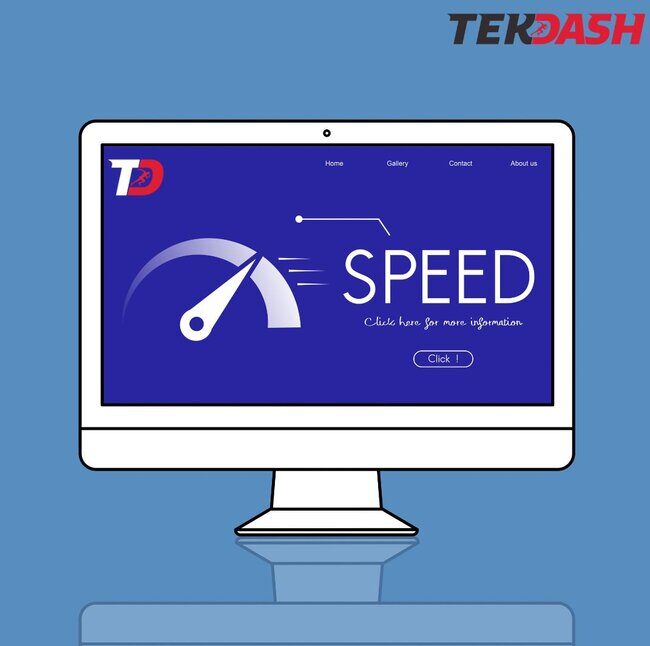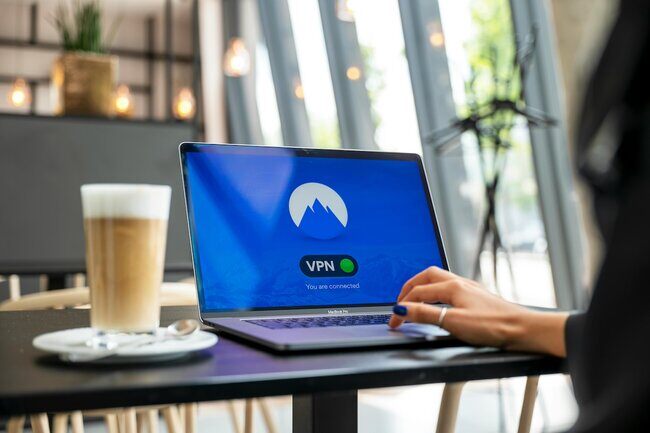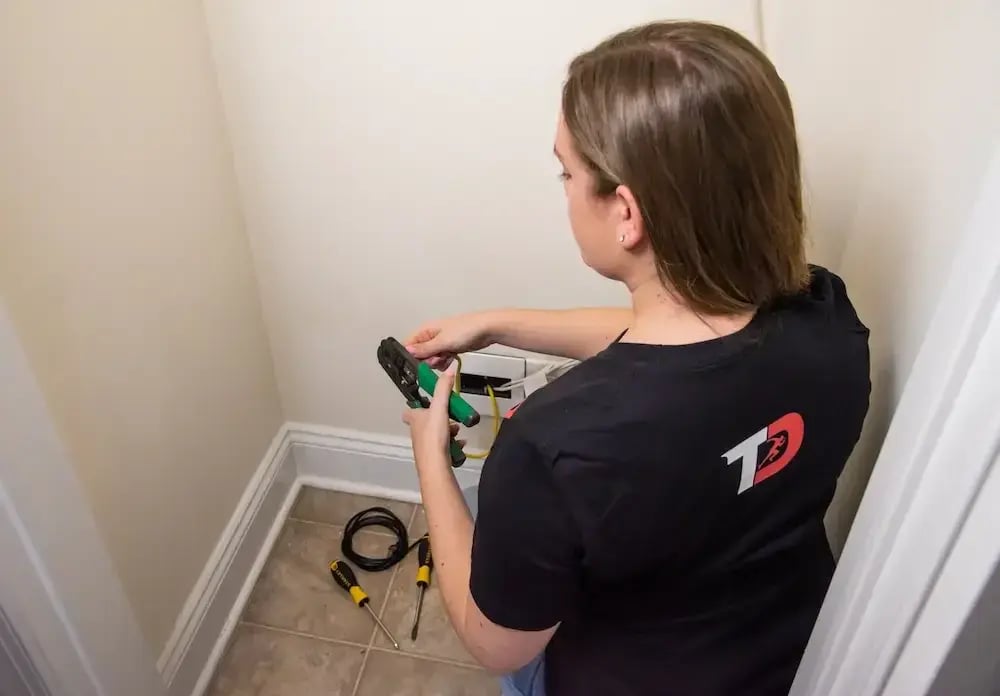Using a VPN (Virtual Private Network) can change your internet speed. Sometimes, it may slow things down. This article will explain why that happens, how you can improve speeds, and what to look for in a VPN.
According to independent testing by AV-TEST, NordVPN is recognized as the fastest VPN on the market, offering download speeds up to 527.1 Mbps in Japan, 417.0 Mbps in the USA, and 255.9 Mbps in the UK. These speeds are nearly twice as fast as many other popular VPN services, making NordVPN an ideal choice for both speed and security
Does a VPN Slow Down Your Internet?
Yes, a VPN can slow down your internet speed. However, the slowdown depends on several factors. Sometimes, the speed difference is small, and other times it can be more noticeable. Let’s explore why this happens.
How a VPN Affects Internet Speed

When you use a VPN, your internet connection goes through a secure "tunnel" to protect your data. This process can make your internet slower. Here are the main reasons why:
Distance to Server
The distance between your device and the VPN server plays a critical role in your internet speed. The further the VPN server is from your physical location, the more time it takes for your data to travel back and forth, which can result in noticeable lag or slower speeds. This happens because the data packets have to travel a longer distance through various network infrastructures (like fiber optic cables and data centers), and each additional "hop" introduces more latency.
For example, if you're in the U.S. but using a VPN server located in Europe, your data must cross an ocean and pass through multiple intermediary points, which increases both the time it takes to send and receive information and the chance for speed degradation. The issue becomes even more pronounced if the chosen server is heavily used or has a slower infrastructure, which can compound the problem.
A nearby server reduces latency, meaning your connection will feel faster and more responsive. Most premium VPNs, like NordVPN, offer a wide range of server locations, allowing users to select servers closer to their physical location for better speed. By choosing a server in your region or one that is geographically close, you can significantly improve connection speeds and reduce the negative impact of distance on your internet experience.
Server Load
If too many people use the same server at the same time, the server can become overloaded, leading to slower speeds for everyone.
Encryption
VPNs protect your data by encrypting it, which adds an extra layer of processing. The more advanced the encryption, the more time it can take to handle your data, which can slow things down.
Internet Speed of ISP
The speed provided by your Internet Service Provider (ISP) is a fundamental factor in determining how fast your internet connection will be, both with and without a VPN. If your ISP offers a slow connection, a VPN cannot magically make it faster. In fact, since VPNs add extra steps (such as encryption and server routing), they may slightly reduce your speed. For instance, if you are on a 10 Mbps connection, using a VPN will not give you faster speeds, but it may reduce your effective speed due to the overhead involved in processing your data. If your home or business network or internet is slow checkout this in depth article on how to improve it.
Another important point is that many ISPs engage in a practice called "bandwidth throttling," where they deliberately slow down your connection based on certain activities like streaming, gaming, or torrenting. In these cases, a VPN can actually help by masking your activity from the ISP, potentially bypassing throttling and improving your connection speed during those specific activities. However, this only applies if your ISP is limiting your speed based on your usage type and not the general speed of your connection.
In summary, while your VPN may affect speed, it can only perform as well as your ISP allows. If your internet is slow before using a VPN, the VPN cannot boost it. For the best results, it's essential to have a high-speed internet plan from your ISP in combination with a reliable VPN service.
7 Ways to Improve Your Slow VPN Internet Speeds

While VPNs can cause some slowdown, there are several strategies to help boost your VPN speeds. Let’s dive into these methods to optimize your connection.
Connect to a server closer to your physical location
One of the simplest ways to improve VPN speed is by connecting to a server that is geographically close to your location. The shorter the distance your data has to travel, the less latency you'll experience. This means faster data transmission and a smoother browsing experience. Most VPN providers allow you to choose from multiple servers worldwide, so selecting one nearby can reduce speed drops significantly.
For example, if you are in the U.S., connecting to a VPN server in Canada will likely result in faster speeds than choosing one in Europe. Many VPN services, like NordVPN, offer a "Quick Connect" feature that automatically connects you to the fastest nearby server
Connect to a server that isn't overloaded
Overloaded servers—those that have too many users at once—can drastically slow down your connection. Many VPN providers display the server load in their apps, allowing you to pick a server with fewer users. By avoiding crowded servers, you’ll experience less competition for bandwidth and therefore faster internet speeds. If you're noticing slowdowns, switching to a less populated server can provide immediate improvements.
Some premium VPN services even balance loads across their servers, which helps reduce the chances of encountering overloaded servers
Try connecting via a different VPN protocol
VPNs use different protocols to establish secure connections, and some protocols are faster than others. For instance, the WireGuard protocol (often used by NordVPN's NordLynx) is designed for both speed and security, offering faster connections than traditional protocols like OpenVPN. If you're experiencing slower speeds, switching the protocol in your VPN settings could make a noticeable difference.
Many VPNs allow you to toggle between options like OpenVPN, IKEv2/IPsec, and WireGuard, so it’s worth experimenting to find the one that works best for you
Enable split tunneling if available
Split tunneling is a handy feature that allows you to send part of your internet traffic through the VPN, while the rest accesses the internet directly. This reduces the load on the VPN and can significantly speed up your connection for activities that don’t require VPN protection, such as local streaming or online gaming.
For instance, you could route sensitive traffic like banking through the VPN, while letting non-essential traffic bypass it, optimizing both security and speed
Use a wired connection

Wi-Fi is convenient, but it’s often slower and more prone to interference than a wired Ethernet connection. If possible, connect your device directly to your router with an Ethernet cable. Wired connections offer faster and more stable internet speeds, which can help boost VPN performance.
Switching to a wired connection is particularly useful when performing high-bandwidth activities like gaming, video conferencing, or streaming HD content. Ethernet cable installation services near you is what TekDash can help with and are specialized in this type of work. We can help run ethernet wiring in your home or business to not only connect devices but also help wire access points to help build you a solution that gives you blazing fast internet throughout your entire home or business.
Close unnecessary apps running in the background
Running multiple applications at once can drain your internet bandwidth, especially if apps are using the internet in the background without your knowledge. Streaming services, cloud backups, and even some browser tabs can hog bandwidth, slowing your VPN performance.
Before connecting to a VPN, close any unnecessary apps or background processes that may be using your internet connection. This frees up bandwidth for your VPN and can result in noticeable speed improvements
Restart your router and other devices
Sometimes, the simplest fix is the most effective. Restarting your router and devices can clear any temporary network congestion or issues that may be affecting your speed. A reboot refreshes your connection, allowing your VPN and other devices to run more efficiently.
Additionally, make sure your router’s firmware is up to date. Outdated software can sometimes lead to performance problems that a simple restart or update can fix. If you want additional help check out our blog on troubleshooting slow internet and boosting your Wi-Fi speeds.
What Are the Best VPNs for Internet Speed?
Some VPNs are faster than others. Here are a few things to keep in mind when choosing one:
How to Test VPN Speed
You can test your VPN speed using speed test websites or apps. Try testing your speed with and without the VPN to see the difference. Look for VPNs that are known for fast speeds and that offer many servers.
7 Ways to Improve Your VPN Speeds
Here’s a quick reminder of how to boost your VPN speed:
- Connect to a server closer to your physical location
- Connect to a server that isn't overloaded
- Try connecting via a different VPN protocol
- Enable split tunneling if available
- Use a wired connection
- Close unnecessary apps running in the background
- Restart your router and other devices
Avoid Free VPNs
Free VPNs often have slow speeds due to overcrowded servers and limited bandwidth. Investing in a paid VPN can give you faster and more reliable performance.
VPNs Offer Both Speed and Security
While VPNs can sometimes slow your internet, they offer security benefits by protecting your data. With the right settings and a good VPN provider, you can have both speed and security.
NordVPN stands out by providing not just top-notch security, but also impressive speed. With over 5,500 servers in 60 countries, it ensures you can always connect to a fast, nearby server, minimizing speed drops. NordVPN uses the advanced NordLynx protocol, which is designed to offer both high-speed and secure connections. Its split tunneling feature allows you to route some traffic through the VPN and other traffic directly to the internet, boosting performance while keeping your sensitive data safe.
Try NordVPN for yourself for 30 days with their money back guarantee, plus get 3 months free: Try NordVPN

Using a VPN can slow down your internet speed, but there are ways to improve it. By choosing the right server, using a wired connection, and closing unnecessary apps, you can make your VPN faster. Plus, paid VPNs usually offer better performance than free ones. With these tips, you can enjoy the security of a VPN without sacrificing too much speed. If you still have slow internet or rather have a professional network troubleshooting services, our techs can help get this problem solved for you so you can focus on what matters most to you!